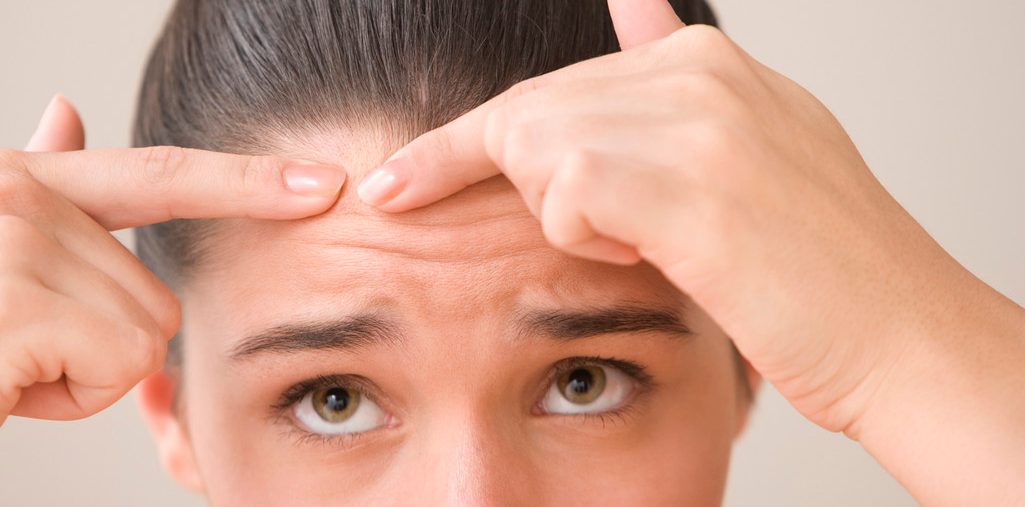How to Treat Your Acne at Home

Some cases of acne will still require professional treatment, which may include topical or oral antibiotics or light therapy. Here's what you can do.
Treating acne is big business, to the tune of more than $4 billion a year.
About 50 million Americans have acne, including 85 percent of people between ages 12 and 24. Young men are more likely to have acne for longer periods of time because testosterone tends to make it worse.
YOU MIGHT ALSO LIKE: Learn How to Treat Adult Acne Triggers
Why do people get acne?
While the exact causes of acne are unknown, research points to several factors, primarily an increase in hormones called androgens. This increase triggers your oil glands to enlarge and produce more oil, which can change into a thick white substance called sebum.
Other causes, either alone or in combination, include genetics, prescribed medications, oil-based cosmetics, stress, depression, physical irritation, humidity, and environmental pollution.
The oil (and sebum) clogs your skin pores, breaking down the pore walls, which encourages bacteria to grow and pimples to develop.
Types of pimples include whiteheads, blackheads, papules, pustules, nodules, and cysts. Generally, in order, those go from relatively mild to deep, painful, and more difficult to treat.
How to treat your acne at home
Gently wash the affected area with a mild cleanser morning, evening, and after workouts. Don’t scrub; it just makes the acne worse. You should also shampoo your hair often, daily if it’s oily.
Use “noncomedogenic” and “nonacnegenic” (does not clog pores) and oil-free cosmetics, toiletries, and sunscreens. Better yet, try wearing no makeup. Avoid astringents, which could dry your skin. Never pop, squeeze, or pick at acne, which could cause scarring.
Be aware of changes in the weather because sweat clogs pores and can make acne worse. At the other end of the spectrum, severe cold can dry out your skin.
This may sound strange, but frequently washing or changing your bed linens might help because the oil in your skin will transfer onto your pillows and sheets. It can then re-contaminate your skin, transferring back the bacteria it contains.
Drink a lot of water. You should anyway for general health. Dehydration makes it harder for the skin to exfoliate, increasing the risk of blocked pores.
Dermatologists also counsel their patients to relax the body, possibly through yoga or exercise. Treat depression. Feeling sad or stressed can show up in your skin.
Typical over-the-counter medications contain benzoyl peroxide, resorcinol, salicylic acid, sulfur, azelaic acid, or Retin-A. Each works differently and is available in many forms, including creams and pads.
All of these products are available at different strengths. Start with the lowest concentration; many people encounter side effects, including skin irritation, burning, or redness.
Some alternative treatments may help you. One is tee tree oil, which works like benzoyl peroxide. You might even find that acupuncture works; many people have reported it does.
No treatment works overnight; expect to wait a month or two to see improvement, and you’ll need to continue to treat your skin.
How do dermatologists treat acne?
Seek professional treatment early for severe acne that doesn’t react to medications. You will greatly increase the chances of reducing your acne and lessen the risk of scarring.
See a doctor if your acne:
- Becomes painful or infected
- Goes deep under your skin
- Does not respond to home treatment
- Covers a large area of your skin
Home remedies may not be effective if your acne is caused by a hormone imbalance or an allergic response.
Most acne patients will apply medication to their skin, which may include a topical antibiotic. If your acne covers a large area of your face, you may also need a prescription oral antibiotics.
Laser and light-based technologies may also help. In light therapy, the doctor uses a cream that makes your skin more sensitive to light, which causes inflammation that shrinks oil glands and destroys acne bacteria.
Chemical peels can help get rid of blackheads on your nose.
You may need a corticosteroid injection for a particular bad breakout.
Although acne is more common in teens and young adults, some adults continue to get acne well into their 30s, 40s, and even 50s. You can even get acne for the first time well into your 50s, especially women in menopause.
You might be asking, “Why me?”
There is a genetic component. If your parents had acne, you’re at increased risk. Everybody has bacteria on their skin, but some people have more of the strains that cause acne. Other strains can help prevent acne. New therapies may one day help skin develop protective bacteria.
Updated:
August 30, 2022
Reviewed By:
Janet O’Dell, RN